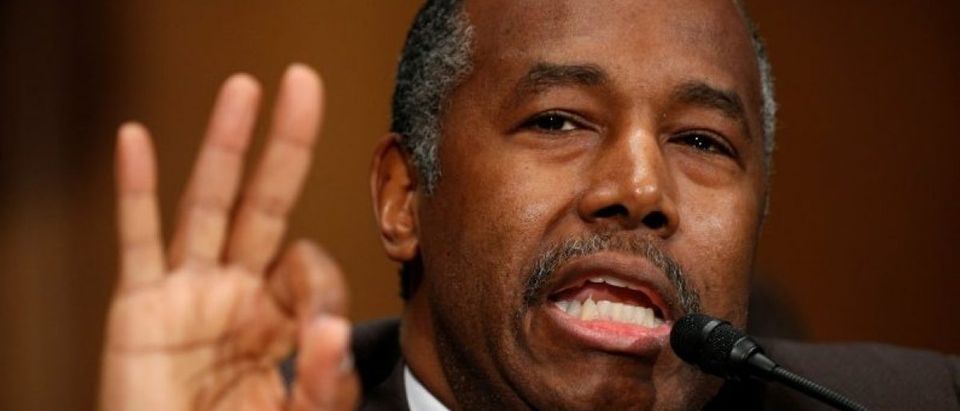The Department of Housing and Urban Development (HUD) doesn’t require federally-subsidized landlords to evict and report fugitives, and a law enforcement initiative specifically hunting such criminals quietly ended approximately five years ago, The Daily Caller News Foundation Investigative Group has learned.
A 1996 federal law allows landlords to evict tenants wanted for felonies immediately, and HUD’s Inspector General (IG) recommended five years ago that the agency develop policies that force fugitives removal.
The department funds 3,300 public housing authorities with 1.2 million units and has an annual budget of nearly $49 billion.
Officials with HUD estimated in 2004 that around 38,000 fugitives lived in federally-subsidized homes and predicted that figure could increase by 5,000 each month and cost taxpayers more than $33 million a year in current dollars.
“Housing authorities have the ability to terminate leases of those placed on fugitive felon status … but currently they are not compelled by HUD policy,” then-IG David Montoya wrote in a June 2017 letter to Iowa Republican Sen. Chuck Grassley. Grassley is chairman of the Senate Committee on the Judiciary.
The IG recommended in an unpublished 2012 report that HUD tell local housing authorities they must evict known fugitives or they will lose funding for those tenants’ units and the IG will report the landlord to local or district attorneys’ offices “for charges of harboring a felony fugitive.”
The report also revealed that local housing authorities in one region “were choosing not to terminate” the leases for approximately 1,300 fugitives’ living in federally-funded homes, since HUD said evicting wanted criminals was left to landlords’ discretion.
Those fugitives were “wanted for a wide range of felon charges,” the report said. The law enforcement agencies that issued the warrants lacked funds to extradite the fugitives. (RELATED: No Explanation For Why Feds’ Hunt For Public Housing Fugitives Was Quietly Ended)
The report was never published or sent to HUD executives because of problems verifying the number of fugitives. TheDCNF received the report through a Freedom of Information Act request, which the IG said was released by mistake.
It’s not clear if the IG discussed with HUD the recommendations to direct local authorities to evict fugitives since the report wasn’t published, but the watchdog does sometimes consult with HUD on its drafts, Montoya wrote in his June letter.
Montoya also said it was not the IG’s responsibility to enforce the 1996 law, rather that “[f]ugitive apprehension of those that reportedly reside in public housing is a role that is managed by housing authorities, the U.S. Marshals Service and local law enforcement.”
He added that it “would be difficult” to assist the U.S. Marshals because of the IG’s other responsibilities. Montoya resigned from his position without public notice soon after sending that letter.
The U.S. Marshals hunt fugitives, but they don’t target those living in HUD-funded homes. The important distinction is that taxpayers are subsidizing such fugitives’ rent and potential hideout.
The Government Accountability Office (GAO) questioned the IG in 2002 on why it wasn’t enforcing the 1996 law. That scrutiny, in part, led to the creation of a law enforcement partnership between the IG, the U.S. Marshals and the National Crime Information Center (NCIC).
The Fugitive Felon Initiative targeted fugitives living in HUD-funded homes and caught nearly 9,000 over the next 10 years. Then, the initiative quietly ended around 2012 without explanation.
2012 was also the last time the IG was able to link HUD data with the National Crime Information Center’s database, the watchdog told Grassley in 2016, and when the IG was unable to verify the 1,300 fugitives living in one region.
The issue has largely turned into a finger-pointing game:
–HUD and the IG claim it’s the local housing authorities’ job to evict fugitives.
–Local authorities said HUD doesn’t compel them to evict fugitives.
–The IG claims it’s the U.S. Marshal’s job to arrest fugitives and HUD’s job to ensure local authorities are complying with the law.
The is now being investigated by GAO at Grassley’s request.
Officials with HUD did not respond to TheDCNF’s multiple requests for comment.
Follow Ethan on Twitter. Send tips to ethan@dailycallernewsfoundation.org.
All content created by the Daily Caller News Foundation, an independent and nonpartisan newswire service, is available without charge to any legitimate news publisher that can provide a large audience. All republished articles must include our logo, our reporter’s byline and their DCNF affiliation. For any questions about our guidelines or partnering with us, please contact licensing@dailycallernewsfoundation.org.


